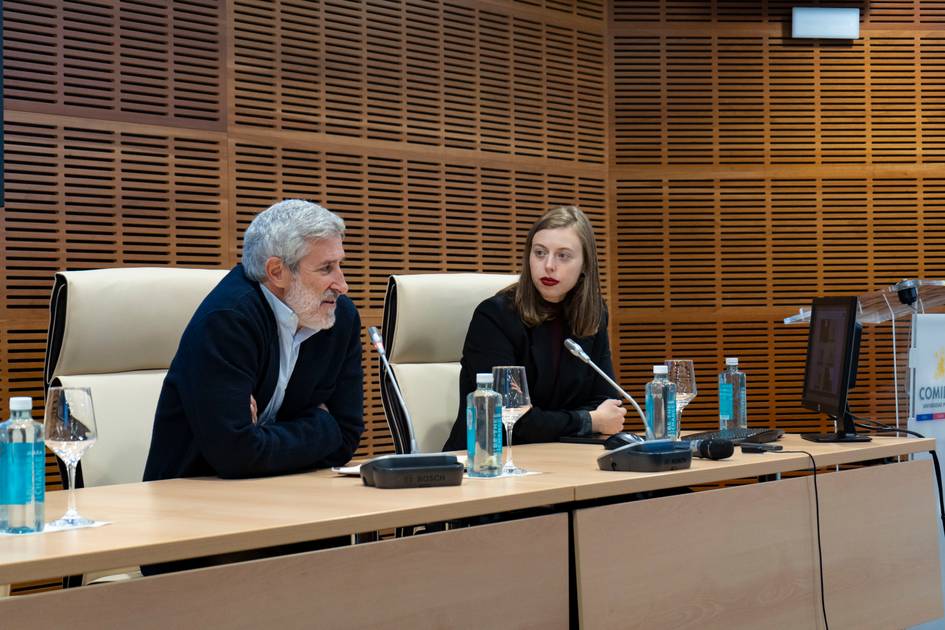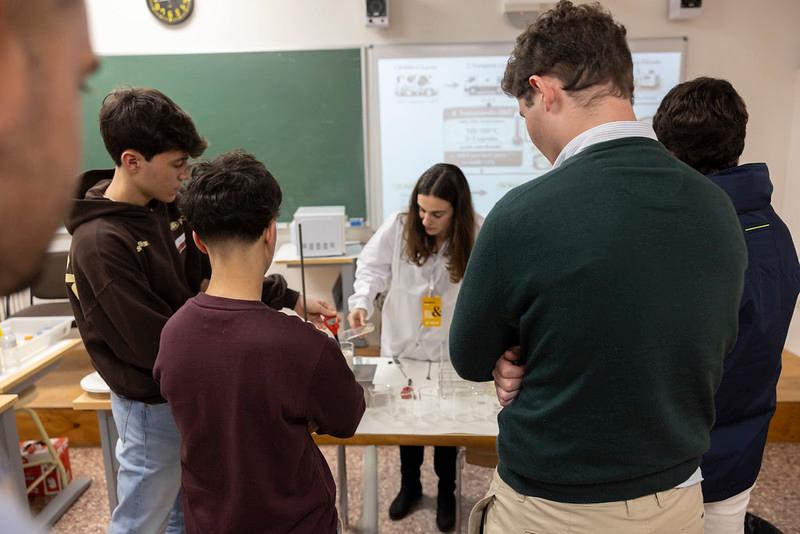Cities of the future: Innovation and strategies for sustainable urban mobility
The event organised by the Kapsch Chair for Sustainable and Intelligent Mobility brought together experts and representatives from various Spanish cities to discuss urban mobility policies and strategies.

19 November 2024
The Kapsch Chair for Sustainable and Intelligent Mobility organised a day dedicated to sustainable urban mobility. The day began with a presentation by Alfredo Escribá, CTO of Kapsch Technologies, followed by an introduction by Natalia Collado, researcher of the Chair, who reviewed the empirical evidence on economic signals to manage congestion.
More photos
Collado highlighted the pernicious effects of congestion on health and the economy, noting that "infrastructure is not able to absorb all the demand, and increasing supply can induce more demand". He also stressed the importance of policies that encourage modal shift towards public and collective transport, as well as the implementation of congestion charges and traffic restrictions in low-emission zones.
The round table, moderated by Jorge Galindo of Esade EcPol, included Javier Carvajal Naranjo, Javier Ortigosa, Leire Balzategui and Alberto Romero Bailén, representatives of the city councils of Madrid, Barcelona, Vitoria and Malaga, respectively. The speakers shared their experiences on how to boost public transport by improving its quality, public perception and political management of incentives and disincentives, the need for good communication and the importance of accurate data and intelligent planning.
During his speech, he also emphasised the complexity of managing urban congestion due to cultural factors and the need to assess which policies actually work. "It is crucial to understand that the transport system is within the urban context and that any policy implemented alters the dynamic equilibrium of the system," he said. He also stressed the importance of considering the short, medium and long-term effects of mobility policies.
You may be interested in...

A meeting to listen, share doubts and discover that talent is also built with courage

The program includes three complementary professional profiles: agricultural engineer, manager and industrial engineer

The university community came together in prayer as a gesture of commitment to peace and justice
